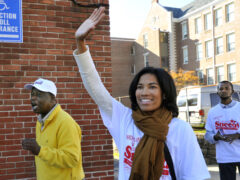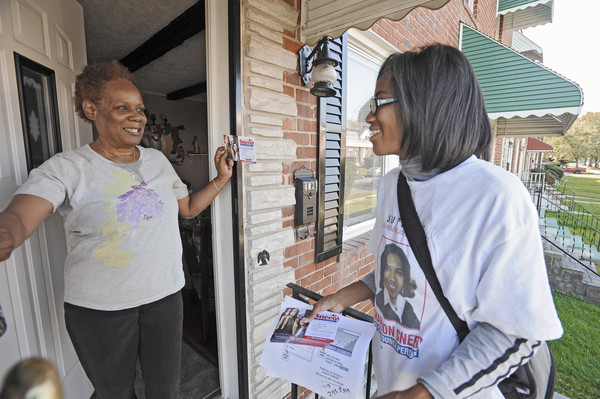Friday, February 5, 2016 edition…

As you can see if you click on the link below, we’ve prepared a table, a 2 page PDF that you can blow up and read online and print if you’d like a hard copy. It’s stocked full of information, but one thing’s immediately clear. Everybody in Baltimore is running for City Council. Okay, that’s a bit of an exaggeration, but it sure seems that way. The February 3 filing deadline having just passed, there are now 79 people running for the Democratic nomination for 14 seats on the Baltimore City Council.
Lots of Democractic Candidates For Baltimore City Council
Six of the 14 incumbents are not running for re-election, 2 of them (Carl Stokes and Nick Mosby) because they are now running for Mayor. Even assuming that all the incumbents win, and some of them will not, the next City Council promises to be new enough to make a difference – and that’s a good thing. Fresh eyes on the city’s problems are exactly what Baltimore needs.
Why are so many people running for City Council? Running, even though they have no plan or ability to mount a well-funded campaign?
Could be for business reasons. Maybe they have something to gain from the exposure. Maybe they’re running for the practice. They’ll lose this time, but learn from the experience and run again. Maybe some of these candidates are just naive and don’t understand what it takes to get elected. Maybe they like the idea of earning a full-time salary and benefits, including a great retirement plan that begins to vest after just a single term, for doing a part-time job. Who knows?
Optimistically and to be kind, lets hope that most of these candidates sincerely feel that they can do something good for their constituents and their city. If they get elected, they’ll find out later that their part-time job is mostly about helping people and businesses in their districts get through the day. As for solving the big problems facing the city – unemployment, poverty, public education that isn’t preparing our children for work or college, crime and so on – that’s not going to happen, not if history is any indication of what our city government is going to accomplish. The Council has the power, but never seems to get around to using it.
That’s unfortunate, but nonetheless true. What’s the basis for this conclusion? Look around. Ask yourself how Baltimore got here, lost a third of its population, suffers from substantial, chronic unemployment and poverty that spans generations, a seriously underperforming public school system and God-awful crime, most of which is a consequence of the city’s perpetually anemic economy. The answer, in large part, is an ineffective city government, now struggling to remain solvent and provide even minimum levels of essential services. There is so much more that an inspired City Council could have done and has to do. Maybe the new Council will finally get the point and find its purpose and voice.

Shannon Sneed canvasses for votes in District 13. Ms. Sneed lost in 2011 to the same incumbent by only 43 votes. This time she’s raised more money than Councilman Branch by almost 3 to 1.
Take a look at the table. Notice how many people are running, with how much money, from what parts of the city – and the disparity between what some candidates have been able to raise versus others.
Look at the second column on the left. The first (top) number for each district is the total number of votes that were cast in the last Democratic primary Council race. The total votes cast in a district primary average less than 5000 – less than 70,000 in total out of almost 300,000 registered Democrats. Why are so few people bothering to vote for City Council? Because more than three quarters of the city’s registered Democrats don’t think it makes any difference who’s elected. Honestly, with some exceptions, it’s a conclusion that’s hard to argue against.
Now look at the second (bottom) numbers for each district, the ones labeled “2011 Winner.” Those are the number of votes it took to win in each district’s Democratic primary in 2011. The candidate in District 14, long-term incumbent Mary Pat Clarke, ran unopposed which is why she received 100% of the vote. Likewise for William Cole who ran unopposed in District 11. But notice that, in 3 districts – 9, 10 and 12 – well less than 2000 votes was enough to win it. That’s hardly anybody.
The point is, a smart candidate with a good, compelling platform, a natural rapport with voters and willingness to go door-to-door can beat even the most seasoned, well-funded incumbents. Candidates, you just need to give people the one or few big ideas that will encourage them to vote and to vote for you in particular. Inspire them and watch what happens.
Go door-to-door, shake their hands and, face-to-face, tell them what you’re going to for them and their city. And be sure to ask them… You’ve got to actually thank them for their encouragement, look them in the eye and ask them for their vote. That’s how good retail politics works. Word will spread and, the next thing you know, you’ll have the 2000 to 4000 votes you need to win.

